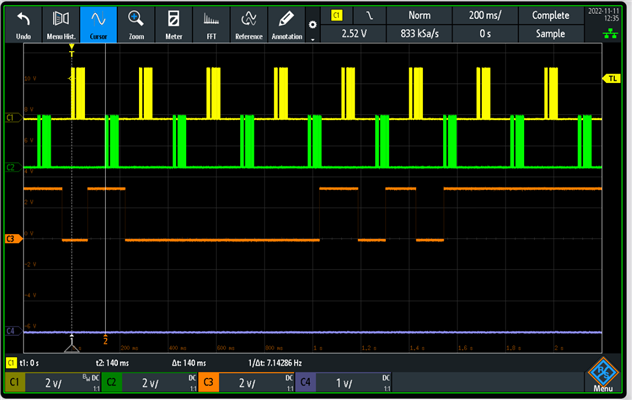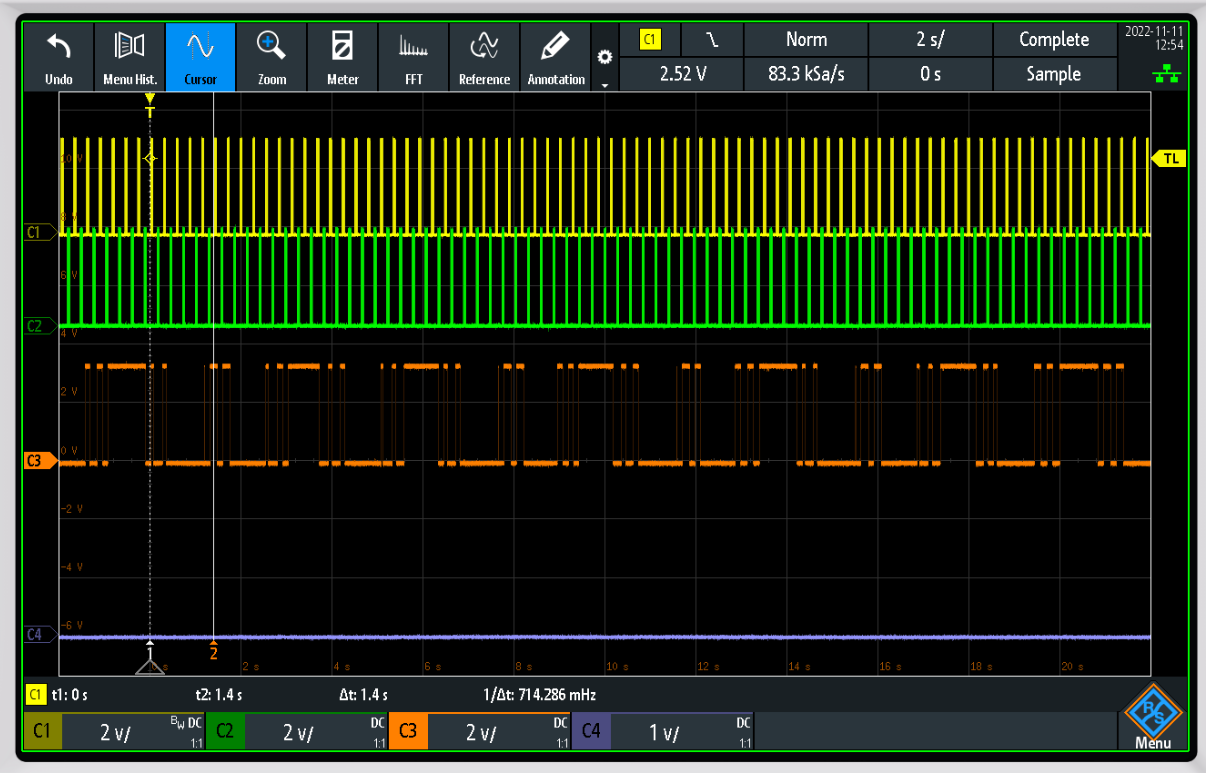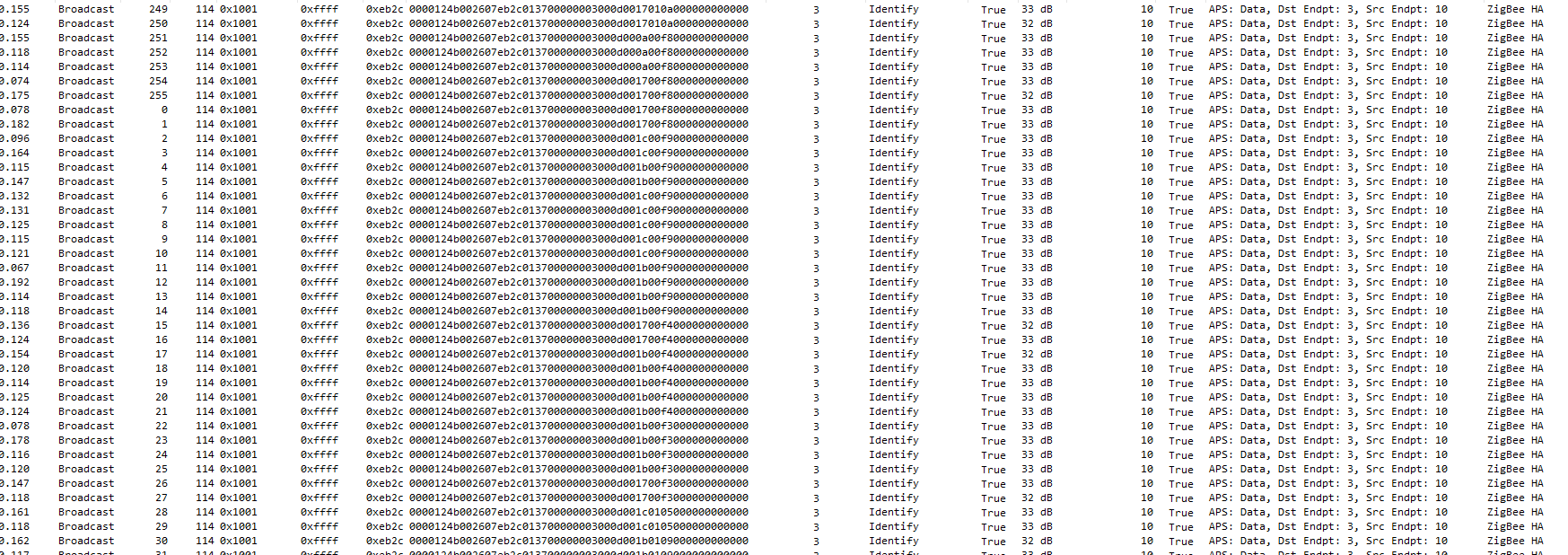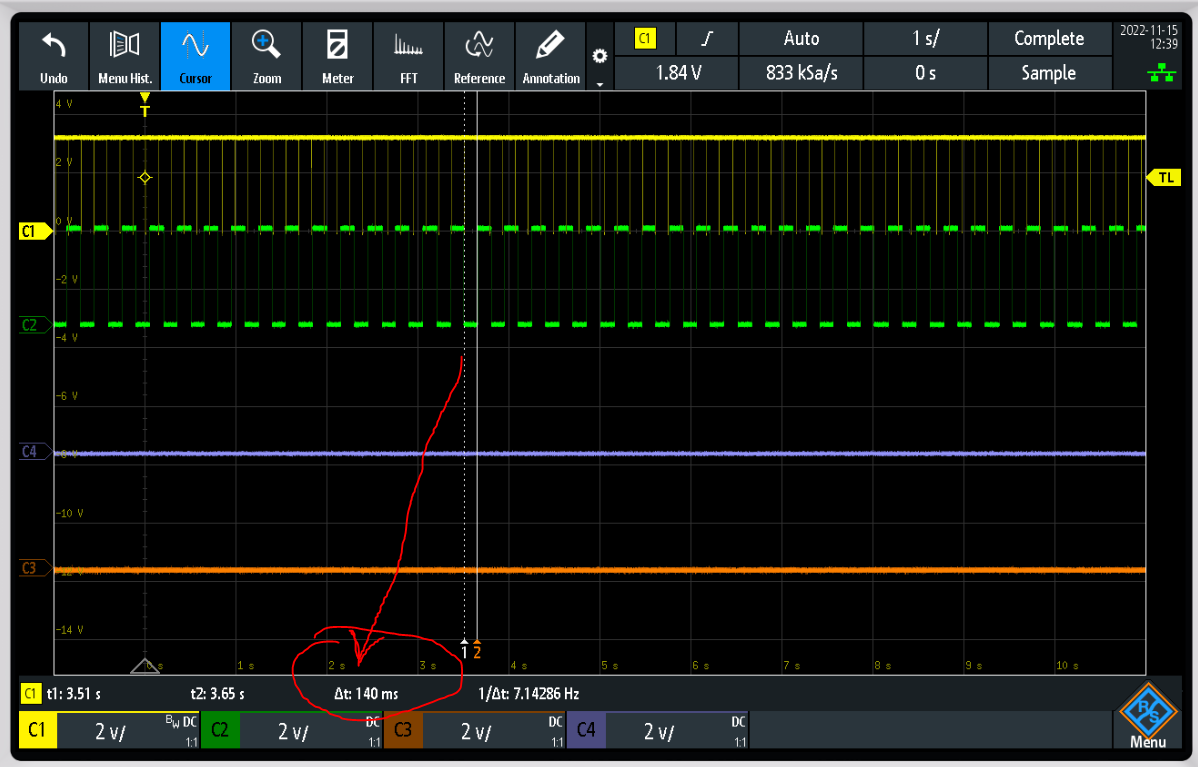Other Parts Discussed in Thread: CC2430, Z-STACK, SIMPLICITI, CC2538
Hi everybody,
I am using CC2530 with Zstack 3.0.2 for a project with several Routers and a single Coordinator. Normally they work alone (they are in movement), without RF communication between them, due to long distances, but sometimes they can work close one of each other. In order to join the network, each Router join it and they begin to work. Routers and Coordinators are always awake, and they never go to sleep. I have also End Devices, which are sending RF frames every 140ms under specific conditions. My problem is that Routers lose RF frames from ED. Please, refer to the attached image. Channel 1 and 2 are signals activated when ED send RF frames. Channel 3 is a toggle pin set in the MyApp_ProcessEvent( uint8 task_id, uint16 events ) -> SYS_EVENT_MSG event -> MSGpkt->hdr.event (afIncomingMSGPacket_t) -> AF_INCOMING_MSG_CMD event. Note Channel 3 is not toggled for more than 800ms, losing up to 5 frames. I atthache a sniffer capture of the ED frames.
ED setup is: CC2530, they don't use Zstack, they use BasicRF and the format frames are based on CC2430 ZStack-1.4.3-1.2.1 for compatibility, which works fine for a years.
So my questions are:
1. Since ED setup is working fine with Routers based on CC2430 ZStack-1.4.3-1.2.1, are there some incompatibility between ED and the Zstack 3.0.2 Zigbee PRO?
2. Is there any network param which is affecting Routers to lose frames?
3. I use some Osal Timers and I tried to disable all of them, because according to the second image there is some pattern when RF frames are lost, but he problem is still happening.
Thanks.
Joaquim.





